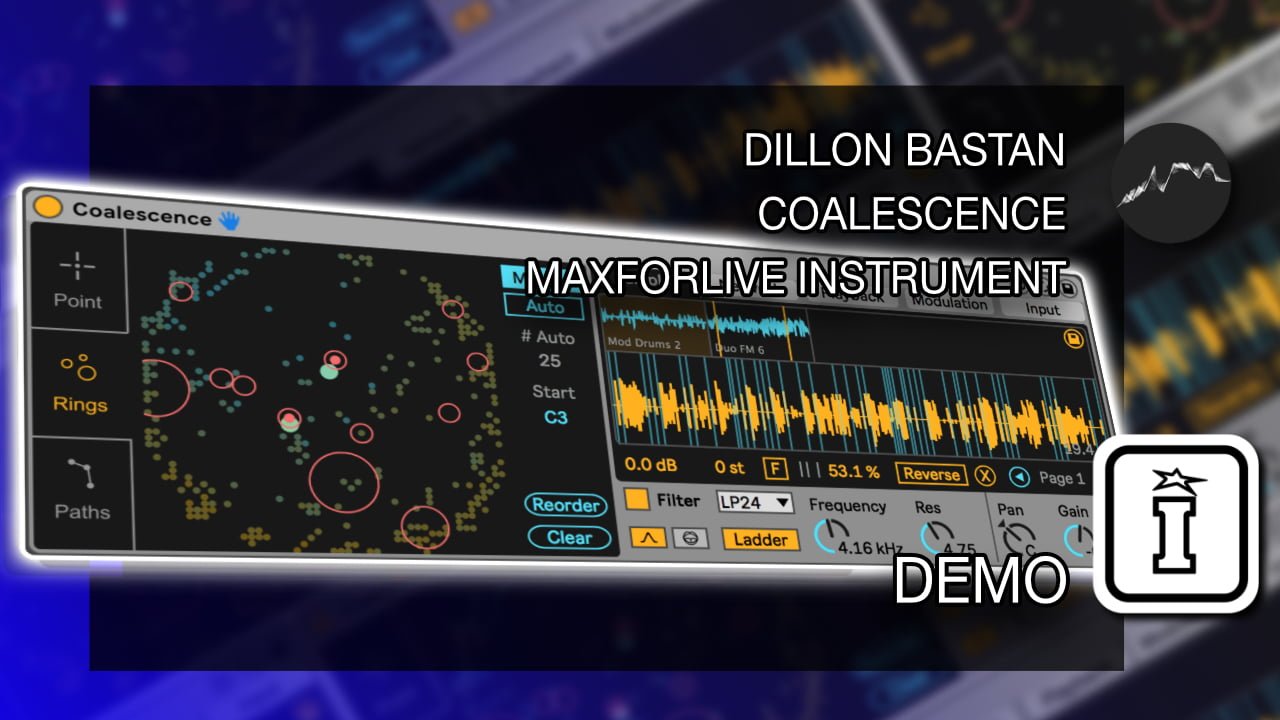£30.00


Double click on the .ALP file whilst you have Ableton Live open.
V1.0.1 – Released 14th December 2023
Coalescence is a Max For Live instrument. It is a concatenative multi-sampler that uses machine learning (SOM neural network) to organize similar sample slices into clusters based on a chosen spectral feature. There are three playback modes that take advantage of these clusters in various ways: Point, Rings, and Paths. Additionally, external audio input can be routed for modulations and to control what audio slices play based on its similarity. All of these combined with a robust modulation system makes Coalescence one beast of a compact sampler for many different situations!
Comes with
The device, user manual, 42 presets, 14 samples, Strange Mod modulator device (for one of the presets)
Features:
NOTE OF TRANSPARENCY AND LIMITATIONS:
CURRENT ISSUES WITH SAMPLE LOADING:
Dillon Bastan is a Los Angeles based sound artist, developer, music producer, and performer. He constructs interactive and intuitive experiences with sound as art, music, or tool. He uses a variety of programming languages, softwares, technologies, and a musical background. His passion for nature and interest in technology pulls him to blend the organic and synthetic.
Dillon draws on experiences from music, traveling, programming, meditation, and construction/carpentry for inspiration and solutions to his projects. He is constantly collaborating, learning, and exploring new possibilities in sound, art, and technology.
MORE DILLON BASTAN PRODUCTS – CLICK HERE
1 review for Coalescence by Dillon Bastan
Jesus –
Dillon is a genius
Gavron –
Probably the best sampler ever!!!